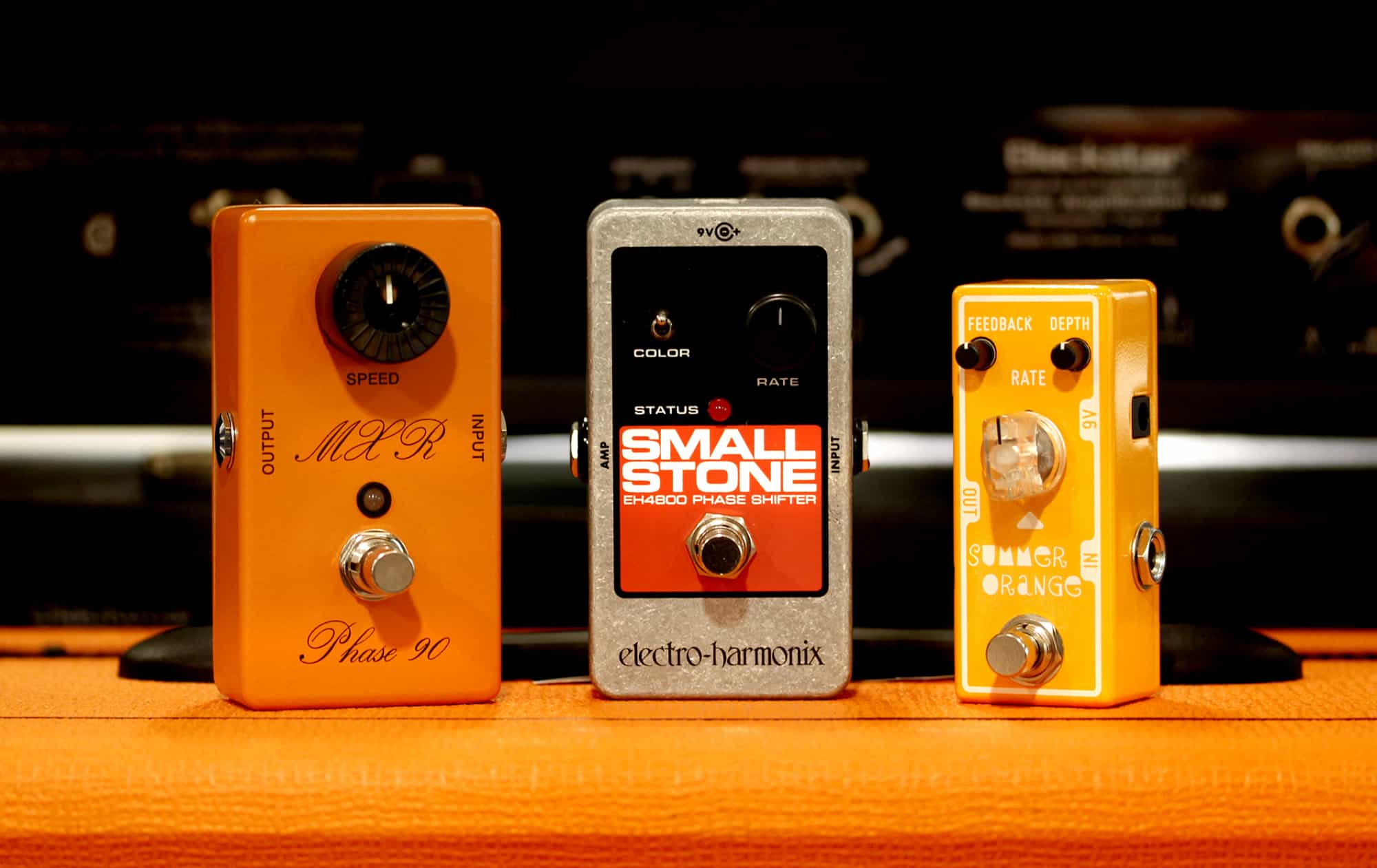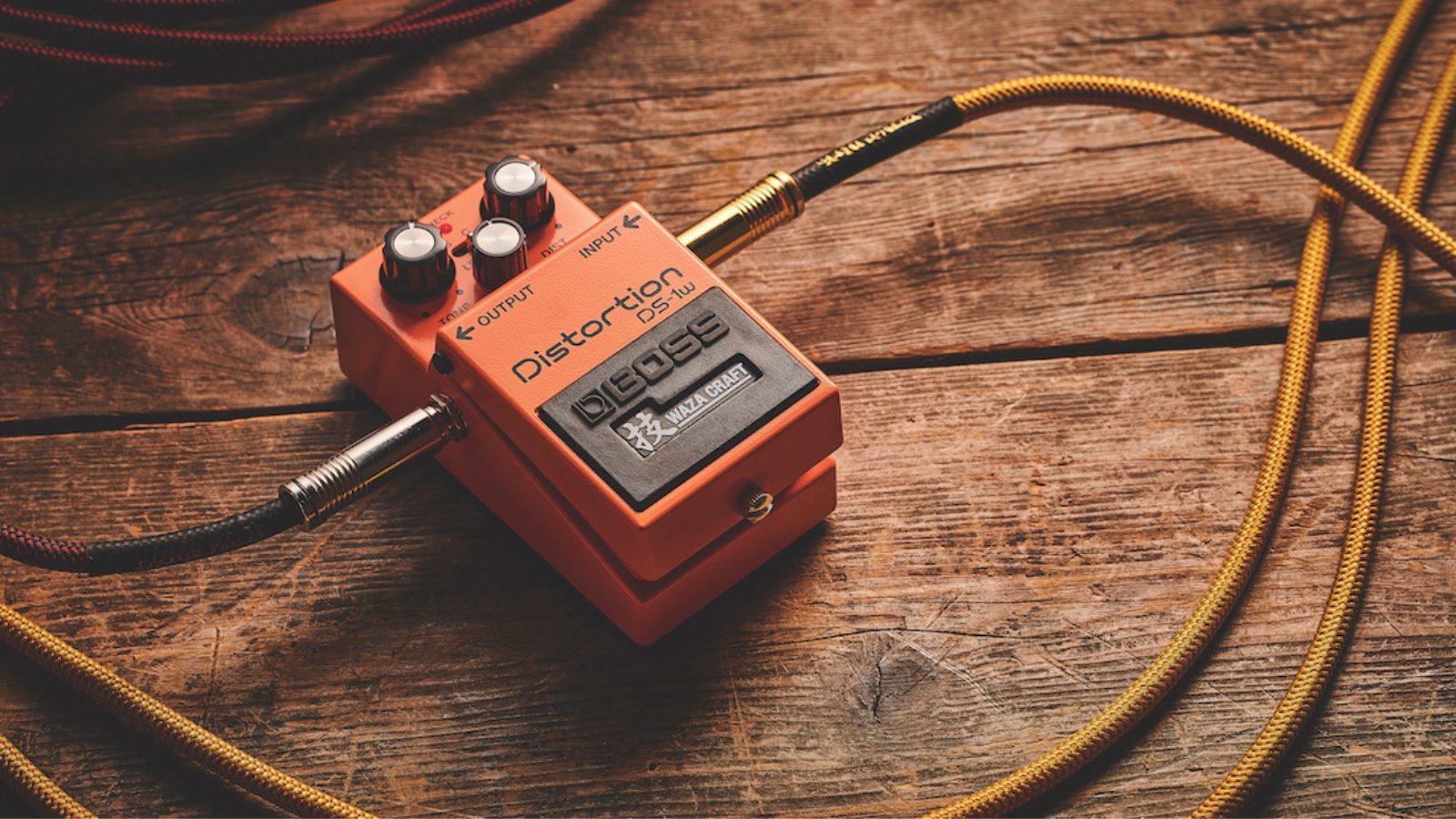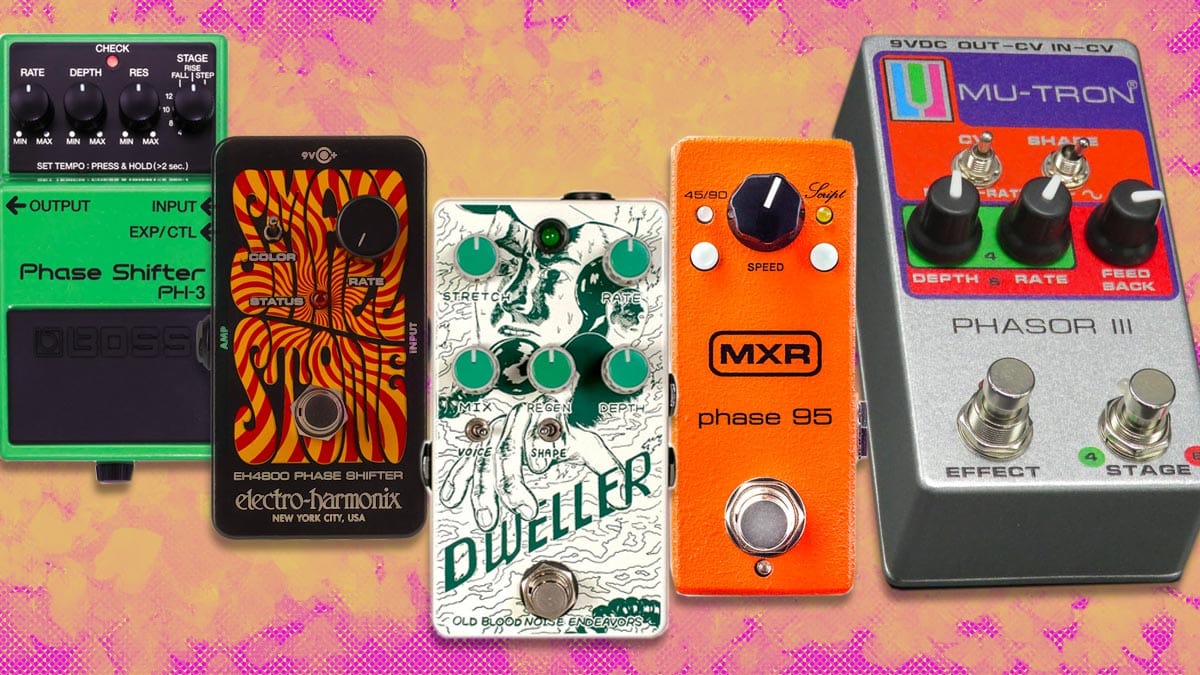Contents
To spice things up during live performances, modern guitarists usually make use of effect pedals and many even connect multiple pedals to make pedal chains. However, it’s important to point out that depending on the order of pedals in the chains, the resulting sound can vary.
You want to include phaser and distortion pedals in your pedal chain but don’t know how to position them? In that case, you have come to the right place. My article is going to give you all the information you need to solve the question of phaser before or after distortion. Read to the end to build a pedal chain that complements and not contrasts your style.
Phaser And Distortion Pedals: Outlines
Phaser
To put it plainly, phaser is a type of modulation effect pedal that is designed to filter signals. In use, phaser creates a series of peaks and troughs in the frequency spectrum which deliver the “phaser” effect.
Standard phaser pedals work in two stages: In the first stage, the signal of your guitar passes through a series of all-pass filters. On the other hand, the second stage is kept as a dry signal. At the end, both stages of phaser pedals merge in order to create an output. Following the mixing of signals, out-of-phase frequencies will cancel each other out and create characteristic notches
Distortion
For your information, distortion is an effect pedal that enables the manipulation of amplified sounds of electric instruments (electric guitar, electric bass, electric piano, synthesizer, ….). For most of the time, the resulting sound features increased gain and become more “fuzzy”, “growling”, “gritty”, etc. In other words, if you wish to add some “dirt” to the sound, distortion won’t let you down.

The Positioning Of The Pedals
In layman’s terms, the answer to the question of phaser before or after distortion depends on your own needs and requirements. For instance, if you want more “dirt” in your sound, place distortion before the phaser pedal. Conversely, if you wish to hear as much of the phaser effect as possible, put it before distortion. You only need to remember that whichever effect pedal you place first will influence the overall output.
Note: It’s strongly recommended that you take into account the kind of phaser and distortion pedals you use. A number of phaser pedals give a good account of themselves if you keep them in the background while others work best at the center of attention. The same applies to distortion you should think it through prior to drawing conclusions. Feel free to experiment a bit and deduce the optimal order for pedals in your pedal chain.

Questions And Answers
Do I have to use phaser/distortion pedals?
All in all, the use of pedals like phaser and distortion is by all accounts not mandatory. That being said, many people agree that on its own, the sound of guitar is not up to specs. Unless you have certain demands, it won’t hurt to give phaser and distortion a go.
What are the most influential phaser effects?
The phaser effect first appeared in the mid-1960s and has massively changed the history of music from that point onward. Examples of influential phaser effects include:
- Pink Floyd’s “Breathe”
- Hendrix’s “Machine Gun,”
- Trower’s “Bridge of Sighs.”
- The Isley Brothers’ “That Lady”
Which phaser pedals should I get?
There are plenty of phaser pedals out there, so it can be hard to decide what one suits your playstyle best. Here are some well-known pedals you can use as reference:
TC Electronic Helix
With a wide range of intensity, built-in Tone Editor and warm analog sounds, TC Electronic Helix is a perfect fit if you’re a fan of modern rock, rhythm, and most basic styles.
MXR EVH90 Phase 90
MXR EVH90 Phase 90 is the successor of the MXR M101 Phase 90 which was heralded as a legend of the 70s and 80s. It boasts extremely simple controls so it is a good match for guitarists that know little about phasers.
Behringer Vintage Phaser VP1
As an excellent product that comes at an affordable price, the Behringer Vintage Phaser VP1 is a solid all-around phaser. With a true hard-wired bypass feature and cool metal design, it never fails to please.

Hi music fan! I am Jeff. Hope that you enjoy some stuff I shared here in my personal blog.
About myself, Currently I am in charging as Artist Manager/Music Supervisor at 72 Music Management. I did managed album to Grammy Award in 2017 with 7 Nominations from 2014-2020 and had the opportunities to work with : A.J. Croce, Blind Boys of Alabama, Bobby Rush, Dom Flemons, Dustbowl Revival, Sarah Grace
Governor of the Memphis Chapter of The Recording Academy is one of a award that I am lucky to achieved.
